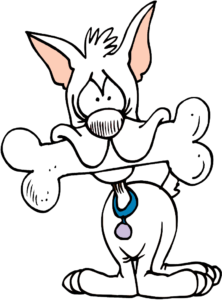Top 5 ways you can help keep your pet’s teeth happy
- Jan, 26, 2018
- zerobyte
- Uncategorized
 There are many factors that can be associated with the dental problems we see in pets. Things like age, breed, genetics and diet are all contributing factors to whether your pet will have good teeth or bad. The list below is just a few of the things we, as pet owners, need to take into consideration when trying to formulate a plan to provide exceptional oral health to our four legged friends.
There are many factors that can be associated with the dental problems we see in pets. Things like age, breed, genetics and diet are all contributing factors to whether your pet will have good teeth or bad. The list below is just a few of the things we, as pet owners, need to take into consideration when trying to formulate a plan to provide exceptional oral health to our four legged friends.
#1 ANNUAL DENTAL CHECKUPS WITH YOUR VETERINARIAN
This is the number one thing you can do to help keep your dog or cat’s mouth healthy. If your pet has a history of dental issues or it is noted in their chart that they develop tartar quickly, your veterinarian may recommend more frequent exams and/or professional cleanings.
#2 WATER ADDITIVES:
There are many water additives on the market these days that all claim to do WONDERFUL things for your pet’s breath, plaque and tartar. Before starting ANY supplement, it is always best to discuss it with your veterinarian. Veterinarians have a wealth of knowledge they can share and would be happy to review the ingredients and let you know why they would or would not move ahead with the product. Healthy Mouth TM is the only VOHC accepted water additive with clinical trials proving its effectiveness. Read how Healthy Mouth works: https://www.healthymouth.com/Articles.asp?ID=291
#3 APPROPRIATE DENTAL CHEWS AND TOYS:
 The general rule of thumb in the world of veterinary medicine is this…if you wouldn’t want someone to hit you in the knee with the item then DO NOT give it to your pet to chew on! Things such as natural and nylon bones, ice cubes, deer antlers, rawhides etc. can do severe irreparable damage to your pet’s dentition. Please refrain from allowing your pet access to these types of dental chews. Broken teeth are painful to pets and an expense that you can avoid. As always, your veterinarian will be happy to help you choose something more appropriate and safe.
The general rule of thumb in the world of veterinary medicine is this…if you wouldn’t want someone to hit you in the knee with the item then DO NOT give it to your pet to chew on! Things such as natural and nylon bones, ice cubes, deer antlers, rawhides etc. can do severe irreparable damage to your pet’s dentition. Please refrain from allowing your pet access to these types of dental chews. Broken teeth are painful to pets and an expense that you can avoid. As always, your veterinarian will be happy to help you choose something more appropriate and safe.
#4 BRUSH THEIR TEETH
With some pets this “feat” will be easily accomplished, and with others it WILL take more time and patience. Slowly introduce just your fingers into your pet’s mouth, eventually adding a taste of toothpaste and then a finger brush or toothbrush as it becomes more acceptable for your animal companion. Try and make it an enjoyable time with your pet. Brushing does have its limitations. You will not get the brush all the way to the back and it is almost impossible to brush the inside surface of the teeth.
#5 DIET:
Diet has become a very controversial subject these days. People have many differing opinions on what to feed their pets based on how they choose to feed themselves. I would highly recommend BEFORE changing what you are feeding your pet, you should have a frank discussion with your veterinarian. Your veterinarian is there to help you make the most informed decisions possible for your best friend that will also help lessen plaque and tartar accumulation and ultimately decrease the number of dental procedures your pet will need to undergo in their lifetime.
Remember that diets, brushing, water additives and treats are all preventative measures. They WILL NOT fix an already existing problem. We can’t rely on these to completely prevent oral disease. After all, we go to our dentist every 6 to 9 months and still brush our teeth twice a day! We need to be careful that a problem does not get missed. We would feel horrible if we were asking our pet to chew a food or toy that was putting too much pressure on a painful tooth! Therefore your pet requires regular dental assessments so that we don’t subject our pets to a bad situation.
Our pets will not tell us that they have a painful tooth. A pet with a broken tooth, periodontal disease or a dead tooth will not complain. The pet cannot imagine that there is a solution to their problem. As humans, we know that we can call our dentist and have the problem fixed. In their world, they do not know that someone can help! They will continue to eat their food. The alternative to not eating is starvation and they will not starve themselves over a painful tooth.


